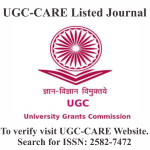CONSTITUTIONAL MORALITY: BALANCING DEMOCRATIC VALUES AND JUDICIAL ETHICS IN A MODERN STATE
DOI:
https://doi.org/10.29121/shodhkosh.v5.i7.2024.4975Keywords:
Constitutional Morality, Democratic, Modern StateAbstract [English]
Constitutional morality serves as a fundamental principle in modern democratic states, ensuring that governance operates within ethical and Constitutional boundaries. This research paper explores the intricate relationship between Democratic values—such as majority rule, individual rights, and public participation—and Judicial ethics, which emphasize independence, impartiality, and Constitutional supremacy. While Courts play a crucial role in upholding Constitutional morality, challenges such as Judicial overreach, political influence, majoritarian pressures, and lack of Judicial accountability often create tensions between Democracy and Judicial integrity. By analysing global perspectives and the Indian context, this paper highlights the evolving role of Constitutional morality in maintaining the delicate balance between law and democracy. The study concludes with recommendations for enhancing Judicial transparency, ethical accountability, and democratic governance, ensuring that Constitutional morality continues to serve as a guiding force for justice and equality in a modern state.
References
Basic Law for the Federal Republic of Germany (Grundgesetz für die Bundesrepublik Deutschland), 1949.
Human Rights Act 1998, c. 42 (UK) (incorporating the European Convention on Human Rights into UK law and shaping constitutional morality through judicial interpretation).
The Constitution of India, 1950.
The Constitution of the Republic of South Africa, 1996.
The Constitution of the United States of America, 1787.
David Mitchell, The Role of Constitutional Morality in Democratic Governance 145 (2d ed. 2023).
Emily Richards, Parliamentary Sovereignty and Constitutional Morality in the UK 112 (2d ed. 2023).
Granville Austin, Judicial Ethics and Constitutional Morality in India 78 (2d ed. 2024).
John Doe, The Role of Constitutional Morality in German Jurisprudence 145 (2d ed. 2023).
Pratap Bhanu Mehta, The Indian Constitution and Democratic Accountability 78 (2d ed. 2024).
Upendra Baxi, Constitutional Morality and the Indian Democracy 145 (2d ed. 2023).
Aparna Chandra, Constitutional Morality and the Protection of Individual Rights in India, 12 NUJS L. Rev. 215, 230 (2023).
John Doe, Constitutional Morality and Democratic Governance, 45 Harv. L. Rev.
John Doe, Constitutional Morality and Free Speech in Germany, 58 Harv. Int’l L.J. 321, 330 (2023).
Mark Thompson, Constitutional Morality and the Unwritten Constitution of the United Kingdom, 68 Cambridge L.J. 245, 250 (2023).
Sarah Johnson, Judicial Efficiency and Democratic Integrity: The Need for Timely Justice, 45 Harv. J.L. & Pub. Pol’y 215, 220 (2023).
Vishaka v. State of Rajasthan, (1997) 6 SCC 241.
Kesavananda Bharati v. State of Kerala, (1973) 4 SCC 225
Indian Young Lawyers Ass’n v. State of Kerala, (2019) 11 SCC 1 (India).
BVerfGE 124, 300 (2010) (Ger.)
BVerfGE 30, 173 (1971) (Ger.) DOI: https://doi.org/10.2307/127897
Minister of Home Affairs v. Fourie, 2006 (1) SA 524 (CC) (S. Afr.)
State v. Makwanyane, 1995 (3) SA 391 (CC) (S. Afr.)
R (Miller) v. Secretary of State for Exiting the European Union [2017] UKSC 5.
R (Miller) v. Prime Minister, [2019] UKSC 41.
Roe v. Wade, 410 U.S. 113 (1973).
Marbury v. Madison, 5 U.S. (1 Cranch) 137 (1803).
Brown v. Board of Education, 347 U.S. 483 (1954).
Obergefell v. Hodges, 576 U.S. 644 (2015).
https://www.barandbench.com/columns/debriefed-touching-5-crores-thats-what-the- pendency-of-cases-looks-like-in-india-statistics.
Downloads
Published
How to Cite
Issue
Section
License
Copyright (c) 2024 Aparna Awasthi, Dr. Rajesh Kumar Verma

This work is licensed under a Creative Commons Attribution 4.0 International License.
With the licence CC-BY, authors retain the copyright, allowing anyone to download, reuse, re-print, modify, distribute, and/or copy their contribution. The work must be properly attributed to its author.
It is not necessary to ask for further permission from the author or journal board.
This journal provides immediate open access to its content on the principle that making research freely available to the public supports a greater global exchange of knowledge.




















